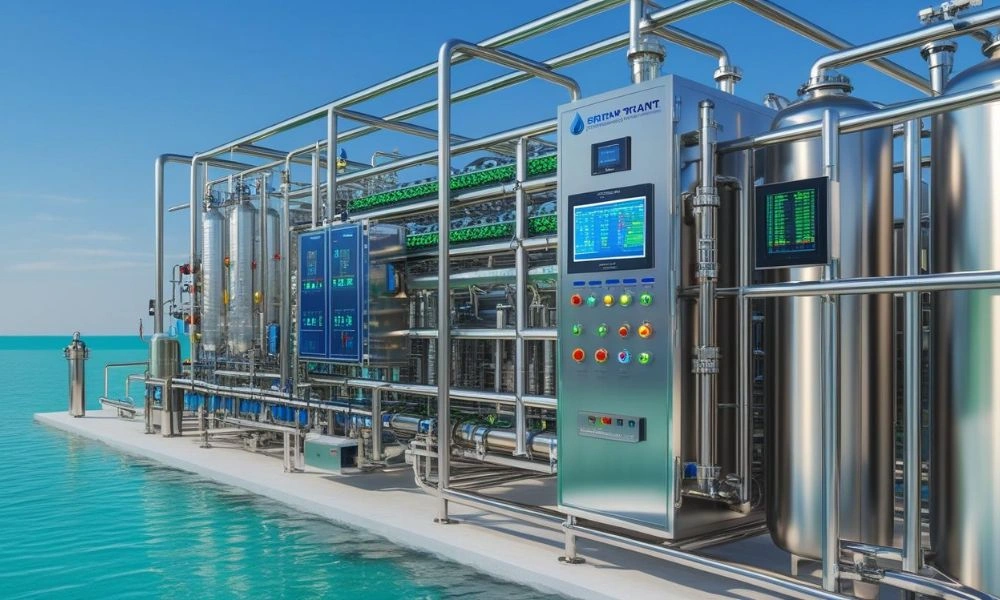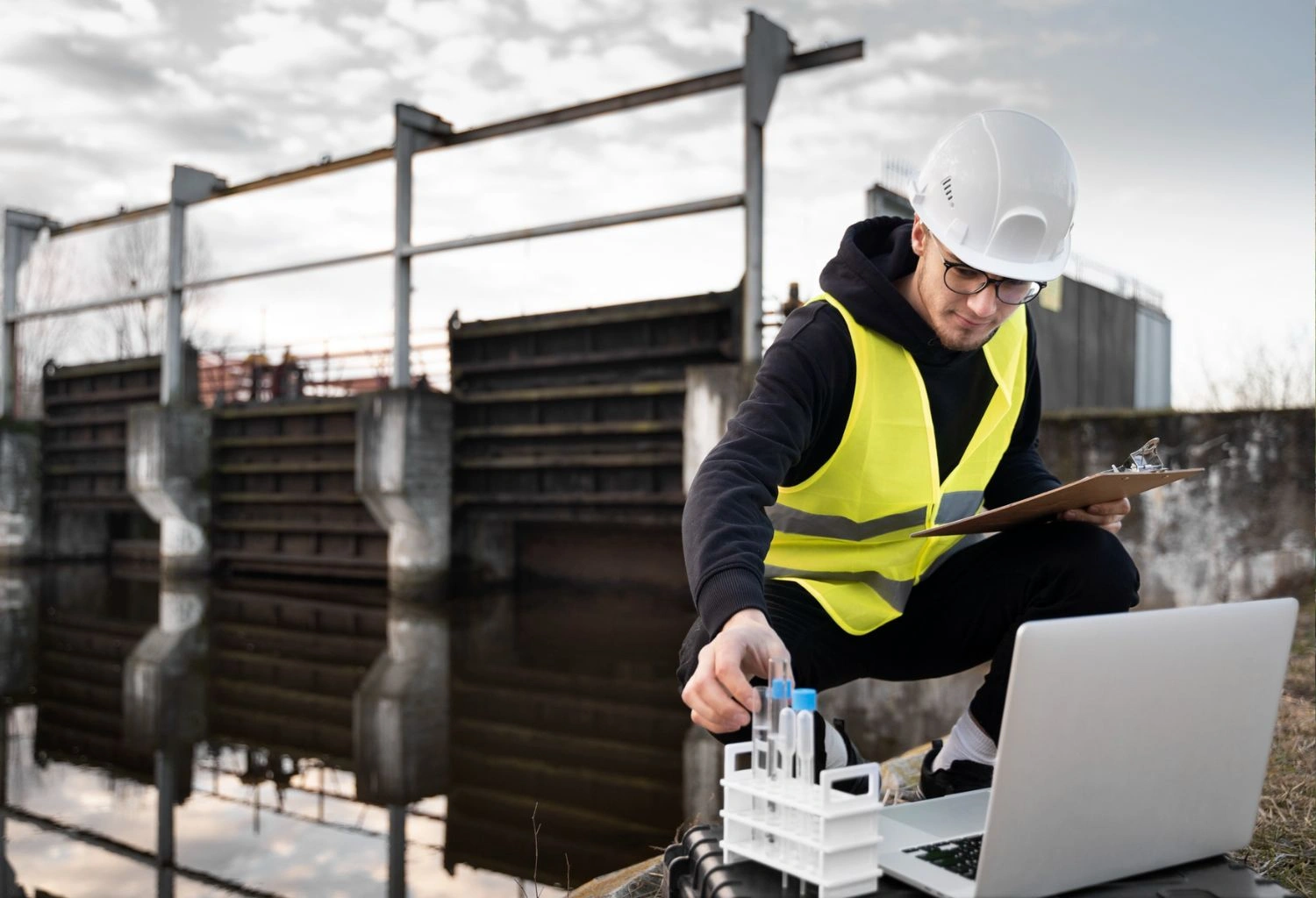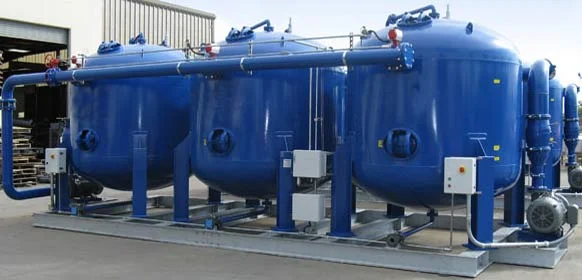Water Care Services Pakistan (WCSP) is a pioneer in desalination by reverse osmosis, offering advanced, energy-efficient, and sustainable water treatment systems. Serving diverse industries, WCSP designs customized RO solutions that ensure water security and environmental protection across Pakistan. Their commitment to innovation makes them the top choice for RO desalination.
Why WCSP Leads in Desalination through Reverse Osmosis
Advanced RO Systems Built for Pakistan’s Water Needs
Water Care Services Pakistan (WCSP) has earned its reputation as a pioneer in desalination through reverse osmosis by delivering systems that are designed specifically to handle Pakistan’s unique water challenges. From high salinity in coastal areas to industrial water quality requirements, WCSP’s RO plants are engineered for maximum efficiency and longevity.
Sustainable and Customized RO Plant Design
WCSP provides custom-engineered reverse osmosis plants that include energy recovery devices, smart sensors, and corrosion-resistant materials. Every project is tailored to the client’s water source, quality targets, and capacity needs—ensuring long-term sustainability and reduced operational costs..
The Science Behind RO Technology
Reverse osmosis is a pressure-driven membrane filtration process. It works by forcing saline or contaminated water through a semi-permeable membrane that allows only water molecules to pass while rejecting dissolved salts, heavy metals, and other impurities.
Industrial Water Treatment Chemicals
How Reverse Osmosis Works
Key Advantages of Reverse Osmosis Systems
- Removes up to 99% of Total Dissolved Solids (TDS).
- No need for harmful chemicals.
- Operates on low energy in advanced models.
- Delivers consistent, high-purity water
- Scalable from residential to industrial applications.
Importance of RO Desalination in Pakistan
Water Scarcity and the Growing Demand for Clean Water
Pakistan faces a dire water scarcity crisis, with per capita availability dropping below 1,000 cubic meters annually. Rapid population growth, industrial demand, and agricultural usage are further straining freshwater resources.
RO as a Reliable Solution for Coastal and Urban Areas
WCSP’s RO desalination systems are especially suited for coastal zones where seawater is abundant but untreated. These systems turn saline water into potable water, reducing reliance on municipal supply and boosting local water independence.
Water Softening Plant
Industries Benefiting from WCSP’s RO Desalination Systems
Textile and Garment Manufacturing
Water used in dyeing and washing processes must be free of hardness, chlorine, and impurities. WCSP’s RO systems ensure quality output, reduce fabric rejection rates, and lower wastewater loads.
Food, Beverage, and Pharmaceuticals
High purity water is essential in production lines. WCSP delivers microbiologically safe and taste-neutral water, meeting hygiene and regulatory standards for these sensitive industries.
Power and Energy Plants
Power generation relies on low-TDS water for boiler and cooling tower efficiency. RO helps avoid scaling and corrosion, extending equipment life and improving performance.
Agriculture and Soil Recovery
Desalinated water can rehabilitate saline soils, improving crop yields and supporting sustainable irrigation. WCSP also provides solar-powered RO systems for off-grid farming operations.
Technology Behind WCSP’s RO Systems
Integrated Pre-Treatment Systems
WCSP includes sand filters, carbon filters, and softeners in their pre-treatment modules. These remove suspended solids, chlorine, and hardness—prolonging membrane life and improving system efficiency.
Bioremediation and AOP
Bioremediation uses microbes to degrade organic pollutants before the RO stage. Advanced Oxidation Processes (AOP)—using ozone, UV, or H₂O₂—break down persistent industrial contaminants, especially in chemical-laden wastewater.
Electrocoagulation and MBBR
Electrocoagulation removes metals, oils, and fine particles by creating flocs through electric current, reducing chemical consumption. Moving Bed Biofilm Reactors (MBBR) offer high-capacity biological treatment—ideal for high-flow or nutrient-rich influents.
Energy Efficiency and Cost Savings
Lower Operational Costs with Smart Technologies
WCSP integrates:
- Energy recovery devices to reuse pressure energy.
- VFD pumps to adjust flow rates.
- Low-pressure membranes for energy savings.
- Smart sensors for real-time monitoring.
These features reduce overall operating costs by up to 60%, making RO desalination viable for small and large-scale operations alike.
Long-Term Economic and Environmental Benefits
WCSP’s systems:
- Require minimal maintenance.
- Extend membrane lifespan.
- Help industries meet ISO and environmental compliance.
- Reduce dependence on expensive freshwater supply.
- Support corporate sustainability goals.
Frequently Asked Questions
1. What is reverse osmosis and how does it work?
Reverse osmosis is a membrane-based process that filters out salts and impurities from water by applying pressure to push water molecules through a semi-permeable membrane.
2. Why is desalination important for Pakistan?
With dwindling freshwater resources, desalination offers a sustainable way to convert seawater and brackish water into usable water for industries, farming, and cities.
3. What makes WCSP a leader in reverse osmosis desalination?
WCSP provides ISO-certified, energy-efficient, and fully tailored RO systems, with integrated technologies like bioremediation, AOP, and electrocoagulation.
4. Which industries use WCSP’s RO desalination systems?
Industries include textiles, food processing, pharmaceuticals, energy production, and agriculture.
5. How does WCSP ensure energy efficiency in RO plants?
By using smart components such as energy recovery units, VFD pumps, and low-energy membranes, WCSP ensures lower running costs.
6. What other technologies are integrated with WCSP’s RO systems?
WCSP combines bioremediation, AOP, electrocoagulation, and MBBR to enhance system performance and lifespan.
How Does Reverse Osmosis Work?
The basis of WCSP’s desalination facilities is reverse osmosis (RO)—a cutting-edge membrane filtration technology designed to remove salts, minerals, heavy metals, and other dissolved contaminants from seawater or brackish water. In this process, pressure is applied to contaminated water, forcing it through a semi-permeable membrane. This membrane allows only water molecules to pass through, while rejecting over 99% of impurities, resulting in clean, drinkable water on the other side.
Reverse osmosis-based desalination is effective because:
- It can filter out up to 99% of Total Dissolved Solids (TDS), including sodium, chloride, arsenic, fluoride, and other harmful ions.
- It is chemical-free and significantly more eco-friendly than conventional processes.
- It’s scalable—suitable for everything from residential RO filters to full-scale industrial desalination plants.
- It delivers consistent, high-purity water, meeting strict quality standards for industries and municipal supply.
- It integrates seamlessly with pre-treatment and post-treatment systems, ensuring long membrane life and water quality control.
- When paired with energy recovery devices and smart sensors, it offers cost-effective long-term performance.
Why Is Desalination Important in Pakistan?
Pakistan is standing at the brink of a serious water crisis with per capita availability dwindling annually. The imminent crisis would hit agriculture, industry, power, and public health. Reverse osmosis desalination provides a stable supply of freshwater from the nation’s unexploited saline water resources.
WCSP’s RO plants aim to offer water independence to industries, particularly in coastal regions where seawater is readily available but yet to be treated. Through the conversion of unusable water into a precious commodity, WCSP is contributing to national initiatives toward sustainable water management.
What Makes WCSP Unique in RO Desalination?
As opposed to standard water treatment firms, WCSP provides tailor-made engineered desalination by reverse osmosis systems. These systems are:
- Constructed using high-efficiency membranes.
- Installed with pre-treatment modules for conditioning of raw water.
- Paired with energy recovery units to reduce operating expenses.
- Built for long-term performance and low maintenance requirements
WCSP is also focused on making sure every project meets ISO requirements and local water quality standards. Their in-house group of water engineers, technicians, and project managers provide solutions that exceed industry players in terms of quality and efficiency.



